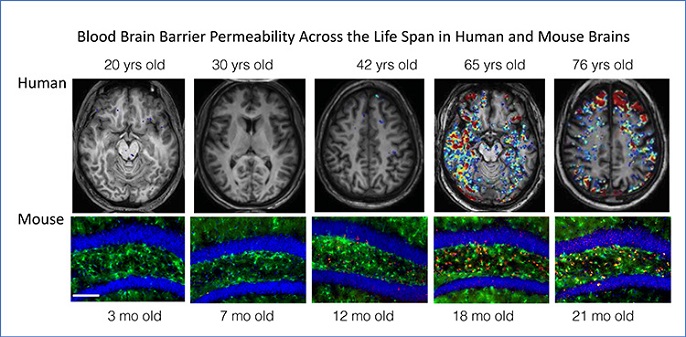Scientists Discover Drugs That Can Restore Brain Power in Old Age
Drugs that reduce brain inflammation are showing surprising results in reversing memory loss and confusion linked to aging. Scientists from the University of California, Berkeley, and Ben-Gurion University found that these drugs helped old mice think and learn like young ones again.
For years, people believed that memory loss and dementia were simply caused by aging and dying brain cells. But now, experts say something else may be going on—chronic inflammation in the brain. This kind of inflammation builds up slowly over time and creates what researchers call a “fog,” which affects how the brain works. The good news? This fog can be cleared.

The root of the problem is something called the blood-brain barrier. This barrier protects the brain by keeping harmful substances in the blood from getting into the brain. But in many older people, this barrier becomes leaky. When that happens, a blood protein called albumin enters the brain and causes inflammation.
New research shows brain inflammation—not just aging—may be the real cause of memory loss
In experiments, scientists injected this protein into the brains of young mice. The result? Their brains started acting old. They had trouble learning, showed signs of stress, and were more likely to have seizures. But when researchers gave the mice special drugs that blocked the harmful effects of this protein, the mice’s brain function improved quickly. They learned faster, had fewer memory problems, and their brains showed less inflammation

One drug called IPW, created by a chemist in California, worked especially well. It blocks a specific brain receptor that causes inflammation. When older mice were given this drug, their brain activity looked young again. They even performed better in tasks like finding their way through a maze.
These findings suggest that drugs targeting brain inflammation could help treat or even reverse dementia. The scientists also found ways to spot brain inflammation early—through special MRI and brain wave tests. This could help doctors know who would benefit most from the treatment.
Even in human brains, the researchers found signs of the same problems—leaky barriers, inflammation, and high levels of the same protein. This means the findings from mice could be useful for treating people with conditions like Alzheimer’s disease and memory loss linked to age.
Now, the team is working to develop these drugs for human use. They hope to help older adults who show signs of brain inflammation, especially those with memory loss or early dementia. The goal is to stop or even reverse the brain changes that come with aging.
Also Read: 7 New Clues Reveal Why Dementia Can Strike in Middle Age
Conclusion:
Drugs that reduce brain inflammation by targeting the TGF-β pathway may hold the key to reversing age-related dementia. With further development, this discovery could change how we treat aging brains, bringing new life and clarity to millions living with cognitive decline.

